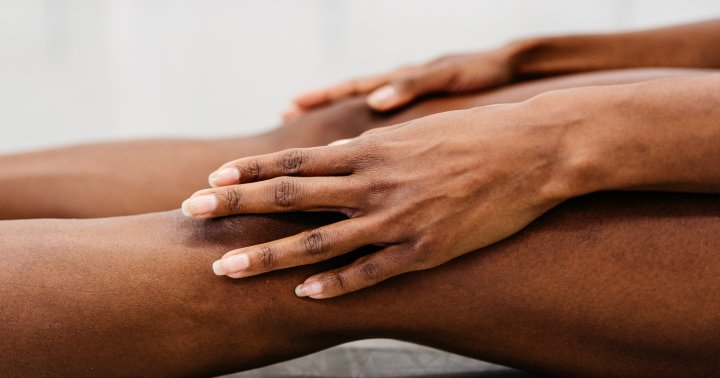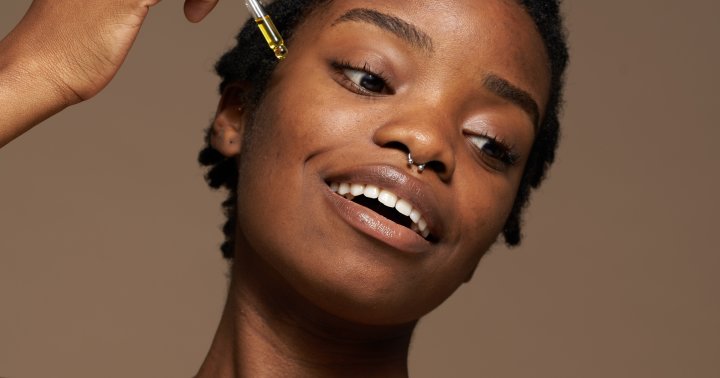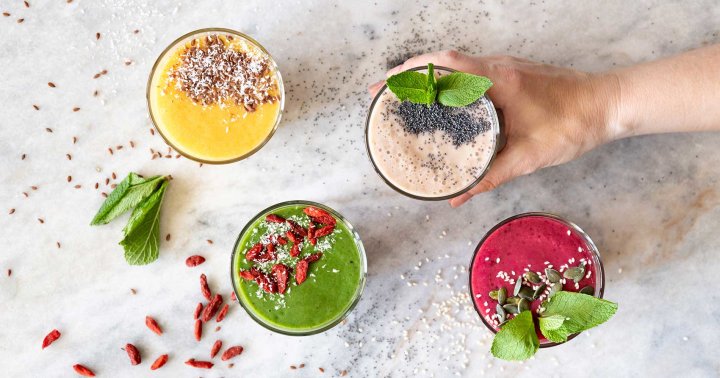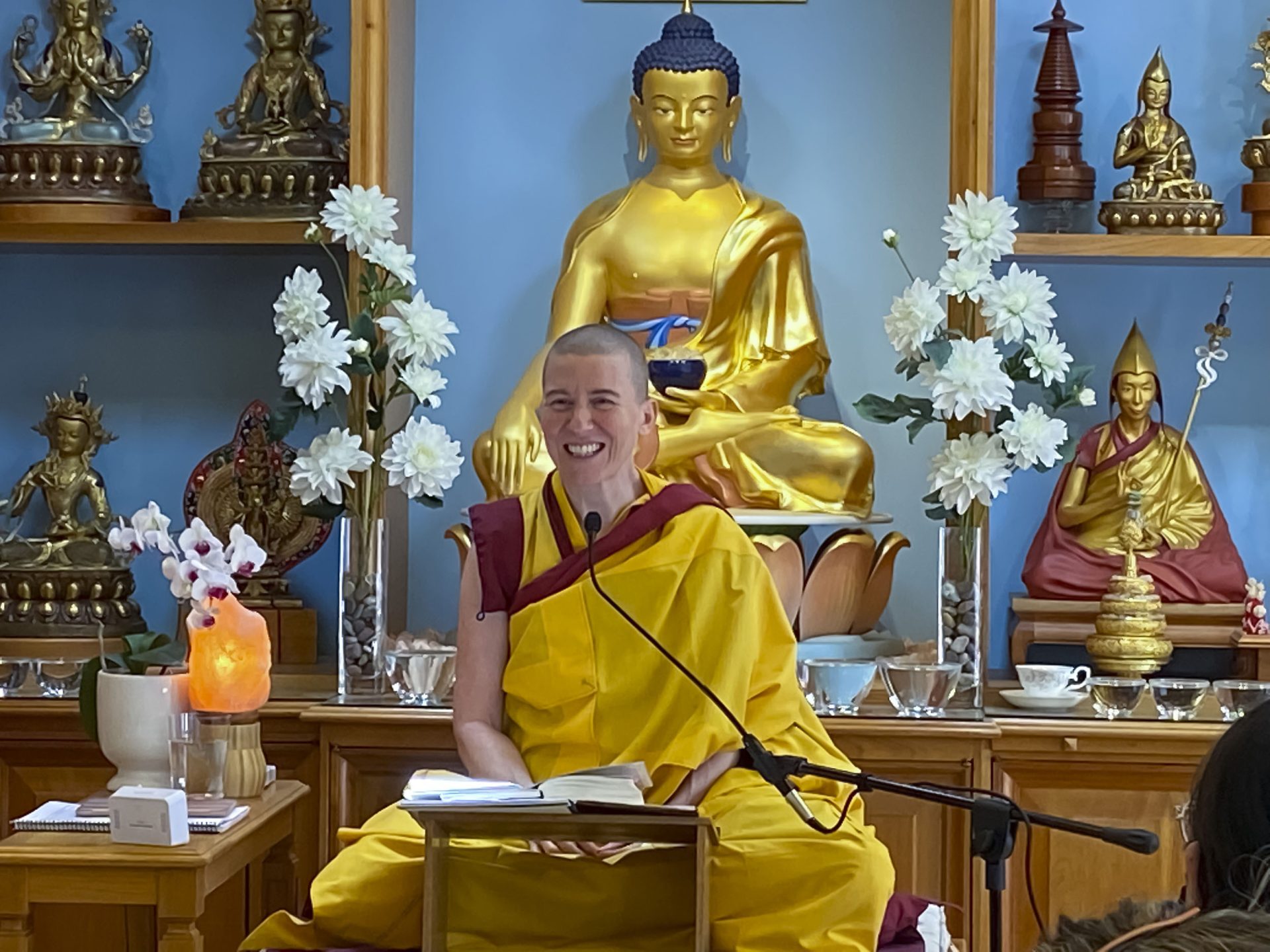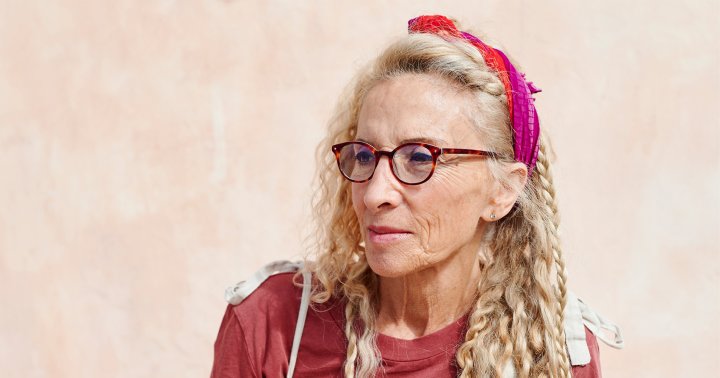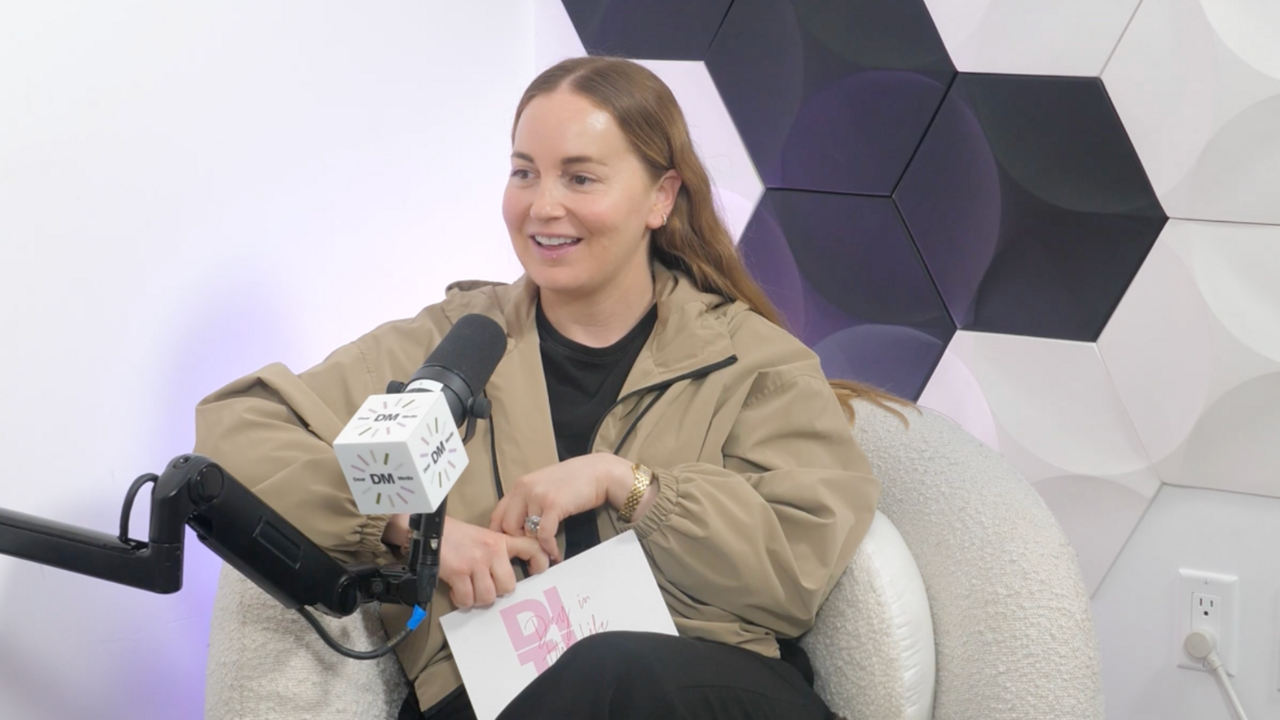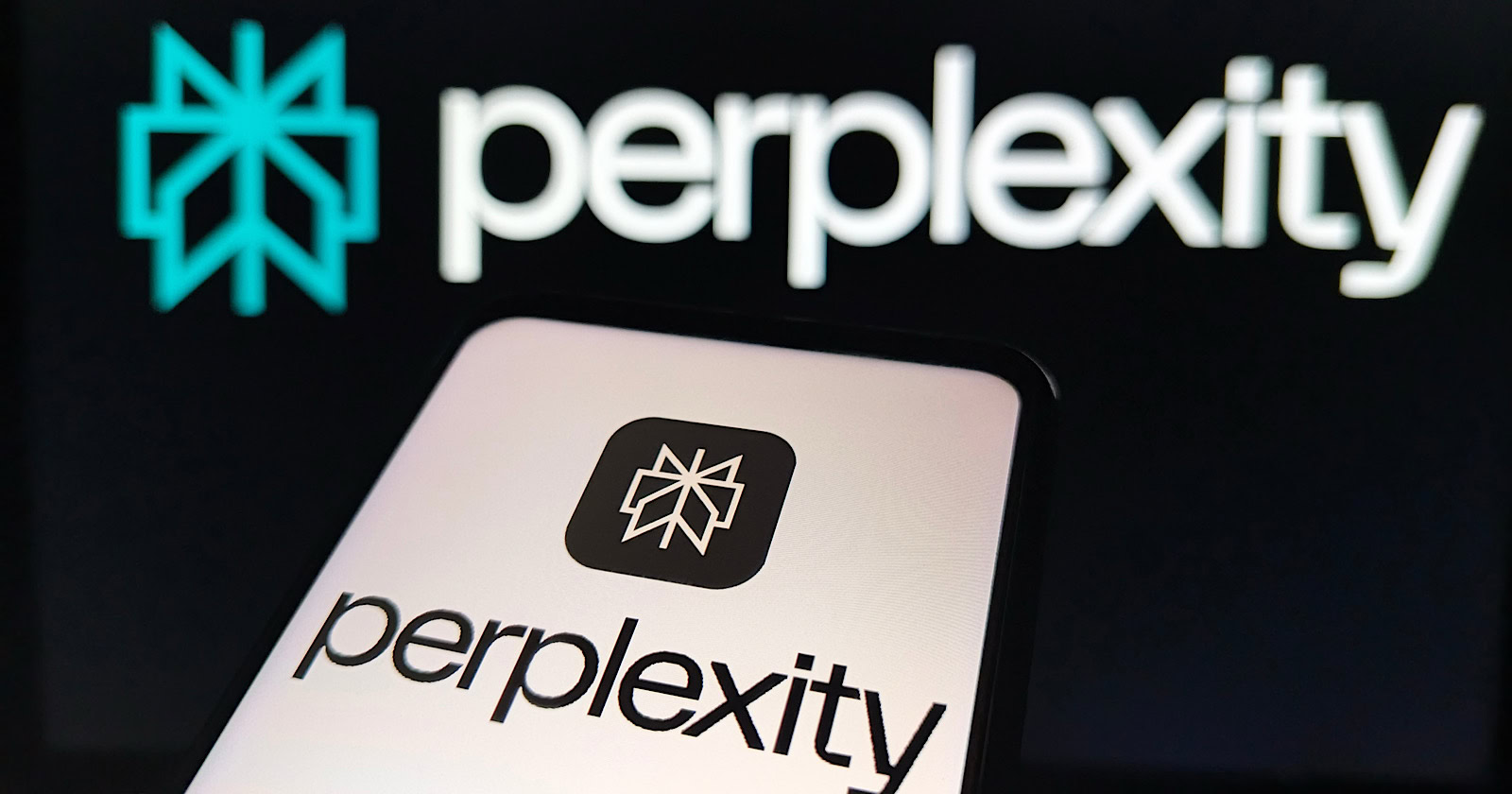This Trending Perfume Will Make You Smell Like Yourself — But Better
The very definition of a sweet nothing.
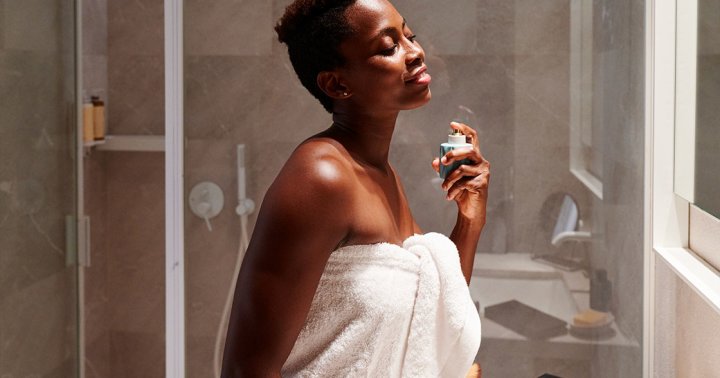
“Effortless” beauty looks are somewhat of an oxymoron, and yet they continue to capture our hearts. Take “barely-there” makeup or “undone” hair—the result is meant to be breezy and unintentional (and thus ineffably cool), while the process is likely anything but. Bold, intricate beats certainly have their time and place (Euphoria made sure of that), but the urge to present something that says, yes, I did wake up like this, lives on.
This minimal mindset even makes its way into the fragrance space: Ever heard of skin scents? These potions are meant to, yes, smell just like your skin…but better. It’s almost as if you rolled out of bed smelling faintly like a neroli blossom.
Unassuming, maybe, but these fragrances do provide a deeper, meaningful form of scent (especially right now), so it’s no wonder we’re seeing them on the rise. If you find yourself gravitating toward skin scents lately—and there are a few new launches calling our names—you might identify with one of these incentives.
Skin scents are nothing new: Often described as the “no makeup makeup” or “athleisure” of fragrance, they’ve been around for years as a subtler, cozier alternative to the more elegant, high-impact perfumes. Celebrity makeup artist Rosie Johnston, founder of by/rosie jane, launched her Rosie Eau de Parfum five years ago, with the tagline, “feels like sleeping in your birthday suit.” However, it seems beauty fans have become re-enamored with these skin scents of late; in fact, Rosie has recently become the brand’s No. 1 best seller, surpassing the previously reigning Leila Lou, a fresh pear number.
In terms of what makes a scent supposedly smell like “skin,” not all brands have the same portfolio: You can find warm woods, white ambers, patchouli, maybe a hint of rose so those earthier notes don’t fall flat. However, most skin-like fragrances will be built around a musk, Chriselle Lim, owner and creative director of PHLUR tells me. “Since [musks] are animalic by nature, they’re incredibly sensual, which lends to the skin-like sensibility.”
But the beauty of skin scents is ultimately in their undetectability. “It doesn't have one particular note. You can't say it smells like anything, definitively,” Johnston adds. The very definition of a sweet nothing.
Why they’re on the rise right now.
When I asked Johnston about Rosie’s resurgence in popularity, she was quick to point out how fragrance, in general, has become much more nuanced. “The trends in fragrance are changing,” she says. “The idea of fragrance is much more modern than it ever used to be—it used to be a lot of glamor, and it was always very romantic.” Now, I suspect as people were cocooned at home for several months, they started to find the beauty in their everyday lives—the warm, crinkled sheets, the crisp morning walk—and gravitate towards these subtler notes.
“We also started to smell differently,” says fragrance expert, reiki healer, and founder of Perfumerie Mindy Yang. “When you have so much time to yourself, you become more mindful.” Practically speaking, a heavy, high-impact fragrance might become a bit stifling for someone who spent most of their time cooped up in their living space, so they might reach for a muted skin scent instead. “We kind of recalibrated our preference and comfort level,” she adds.
There’s something about an eau de parfum that smells like 'the scent someone left behind' that can make you feel somewhat wistful.
I'll admit, connecting skin scents to a lack of human contact feels a little too on-the-nose, but I’d be remiss not to mention how social distancing had an effect on us collectively—and thus might draw many toward skin-like fragrances. See, we know scent memories are powerful, but we actually interact with others through smell in very subtle ways. Think about shaking somebody’s hand: As you grab their hand and interact with that person’s skin, both of your scents disperse into the air, and in that quick interaction, their scent mingles with your own. According to Sally Augustin, Ph.D.—an environmental psychologist who focuses on how sensory details (like scent) affect our moods and experiences—that scent can linger on your own skin throughout the day: “It will eventually end up near your nose where you can smell it,” she says, like when you tuck your hair behind your ear or rest your chin on your palm.
Smell also helps us emotionally read people, says neuroscientist and author of The Source Tara Swart, M.D., Ph.D. "Smell is the most emotive sense as the olfactory nerve has the shortest connection to the brain compared to any of our other senses," she says, whereas the optic nerve, for example, trails all the way from our eyes to the back of the skull. That's why, according to Augustin, you can even use your nose to gauge another person’s mood. “You can tell if somebody is worried or happy by how they smell,” she says, not because someone might grow sweaty with nerves but because our bodies actually give off certain pheromones with each relevant emotion.
In other words: You can literally sniff out how someone’s feeling, and that influences how you communicate with others. For example, if you notice someone is feeling down, you might treat them in a more gentle manner. “All of the [communication channels], like smell and eye contact, send important messages to whoever we're talking with,” adds Augustin.
When those subtle messages suddenly vanish (because they don’t transfer on Zoom), you might notice their absence with a feeling of nostalgia you can’t quite put your finger on. In that case, it makes sense why someone would gravitate towards a perfume that supposedly smells like skin. “People are looking for interpersonal contact, because we need it to survive. And if you can't just go out and coincidentally smell other people, you'll be pleased to find a substitute,” Augustin explains. It seems people are grasping for connection wherever they can, and there’s something about an eau de parfum that smells like “the scent someone left behind” that can make you feel somewhat wistful.
PHLUR’s first fragrance debut (available March 31st) is even called “Missing Person,” meant to smell like the lingering scent of someone you love. “I created Missing Person when I missed the scent of a lover, but I’ve had countless people tell me it reminds them of their mother, father, grandmother, sibling…the list goes on. It’s unique and personal for each person,” says Lim. “I’ve watched people on social media try it for the first time and see them break into tears.” People have relied on beauty as a means of connection for ages; so even if the scents themselves don’t smell exactly like your mother’s skin, for example, it might smell like the soft residue of her face cream—and that can serve the same special purpose.
Skin scents themselves also foster connection, thanks to the way they subtly cling to the body and spark intimacy. It’s not the kind of experience where you walk into a room with the whiff of vanilla announcing your arrival. Rather: “In order for someone else to even smell them, they have to be pretty close to you,” says Johnston. Meaning, skin scents are for you—and whoever else you invite into your orbit. A skin scent has its own language, says Yang, one that says, I choose to let you smell me and come close to me.
But back to how the perfume industry itself is changing: Skin scents provide a deeper, more personalized form of fragrance, which may speak to the industry’s affinity for bespoke experiences. Before, Johnston explains, a lot of legacy brands were defining what fragrance smells like, but people no longer want to be placed in that box. While all fragrance notes can technically shift depending on your skin's pH balance, oil composition, body temperature, and so on, some safe synthetic molecules are actually designed to help enhance your natural musk. “Since skin scents adhere to your skin and evolve as you wear them, they tend to smell like an extension of you…the way you want to smell naturally. It’s an evocative and romantic idea,” says Lim, and it's one that's uniquely you.
By now, I think we understand that the pandemic has influenced a cultural shift (a vibe shift, some would call it) that comes with a bevy of changes, aesthetic choices very much included. As we encounter these choices, many of us find ourselves reconsidering what we care about, what we want to engage with, and what we prioritize—we have to renegotiate who we are, in a way.
On that journey, of course we don’t want to buy into what others say we should smell like. “We're feeding our thirst to get back out there, interact with people, and be noticed, but we’re empowered,” says Yang. “We’re choosing things that make us smell more like ourselves.” Just, you know, with an extra whisper of rose.

 Aliver
Aliver 







